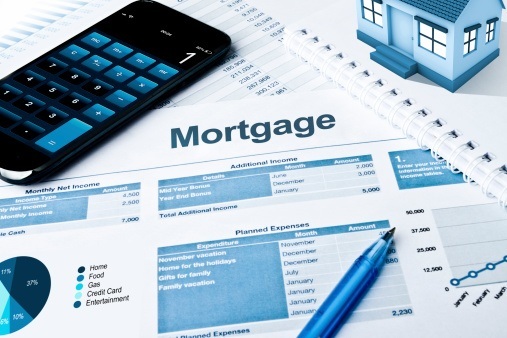 Recently, 30-year fixed-rate mortgage rates have wandered back and forth over the 3% mark. Even when they do climb over that benchmark, that's still extremely low by historical standards. Of course, many prospective home buyers and refinancers worry about the end of unprecedented low rates, but as long as 30-year mortgage rates are at least within shouting distance of 3%, there is still one way you can still get a sub-3% mortgage rate: by taking out a 15-year mortgage.
Recently, 30-year fixed-rate mortgage rates have wandered back and forth over the 3% mark. Even when they do climb over that benchmark, that's still extremely low by historical standards. Of course, many prospective home buyers and refinancers worry about the end of unprecedented low rates, but as long as 30-year mortgage rates are at least within shouting distance of 3%, there is still one way you can still get a sub-3% mortgage rate: by taking out a 15-year mortgage.
Buyers often gravitate toward longer mortgages because they are focused on getting the lowest monthly payment, which also allows them to get a larger mortgage. Those longer mortgages mean lower monthly payments but ultimately higher total interest costs. That being the case, a shorter mortgage means higher monthly payments but long-term savings. In light of all the economic difficulties of recent years, saving money and building equity more quickly are worthwhile goals.
15-year Terms and Lower Rates Can Equal Big Savings
Rates for 15-year mortgages regularly run some 50 to 60 basis points (that is, 0.5% to 0.6%) below 30-year mortgage rates. In addition, their shorter term means that you spend fewer years paying interest. The combination is powerful, as the following example shows:
- When 30-year mortgage rates hit 3% recently, 15-year mortgage rates were at about 2.4%. A half-percentage-point difference in the rate is typical of the relationship between 30- and 15-year mortgage rates, but can be more or less depending on market conditions.
- On a $200,000 loan at 3%, you'd pay a total of $103,554 in interest over the course of a 30-year mortgage.
- On a $200,000 loan at 2.4%, you'd pay a total of $38,353 in interest over the course of a 15-year mortgage.
- In short, cutting the mortgage term in half can cut your interest expense by far more than half. In dollar terms, this example yields a savings of over $65,201. That would represent a meaningful addition to anyone's retirement nest egg.
15-year Mortgages: What's the Catch?
Of course, there is a catch. By compressing your principal payments into a shorter time frame, a shorter-term mortgage will result in higher monthly payments. Using the same figures from the above example, the 30-year mortgage would result in a monthly payment of $843.21 while the 15-year mortgage would result in a payment about 57% higher, at $1,324.18.
Still, that's not a bad deal: cut your interest expense by more than half in exchange for a 57% higher monthly payment. However, if you can't cover such a large increase in your monthly payment, you might consider a 20- or even 25-year term for your loan. While there may not be much difference in the interest rate when compared against a 30-year term, you'll still save money.
By way of example, and even if the rate is the same, a $200,000 loan at a rate of 3% with a 20-year term would see your monthly payment rise to $1,109 but 120 fewer monthly payments means interest savings of $37,348.
However, if you can't handle the 31% higher monthly payment of the 20-year term, you might be able to carry the 12.5% higher payment a 25-year term creates. If you can, you'll generate over $19,000 in interest savings over the life of the loan compared to a full 30-year term.
It's also worth noting that, if your loan has no prepayment penalty, that you can make the term of your fixed-rate loan virtually any length by adjusting the size of your monthly payment. Use HSH.com's mortgage prepayment calculator to run through different scenarios of how you can save money in the long run if you can afford higher payments in the near term.
If you're stretching your budget to buy a home, a 15-year term probably isn't the right fit. However, consider shortening your loan term to a 15-year mortgage if you should find yourself in a position to refinance. Cutting off any future monthly payments you can will save you money, and you'll be mortgage free sooner.
Related: Are 10-year fixed-rate mortgages available?
Keith Gumbinger updated and revised this article.



